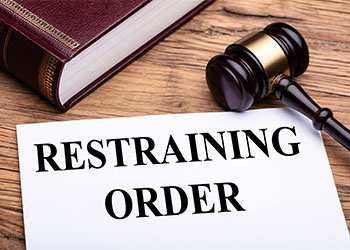Restraining Orders on College Campuses
March 22, 2023
 In our modern world, young people are much more familiar with the term “consent” and how it relates to personal and romantic relationships. However, when two people have different working definitions of what consent means to them, it can lead to miscommunication and situations which can have serious consequences. One such consequence could be receiving a restraining order on a college campus. You may be left wondering what you should do next. This can be especially complicated if you feel the restraining order is unwarranted.
In our modern world, young people are much more familiar with the term “consent” and how it relates to personal and romantic relationships. However, when two people have different working definitions of what consent means to them, it can lead to miscommunication and situations which can have serious consequences. One such consequence could be receiving a restraining order on a college campus. You may be left wondering what you should do next. This can be especially complicated if you feel the restraining order is unwarranted.
If you’d like to speak with a student defense attorney about your specific situation, reach out to the Law Offices of Andrew C. Janecki, serving those in Santa Cruz, California, as well as Palo Alto, San Jose, San Francisco, and Berkeley.
Restraining Orders and No Contact Orders
There are several reasons why a restraining order or no contact order may be filed against you. A restraining order is a court-issued document that prevents contact with another person who has alleged some kind of abuse or believes they’re in danger of immediate harm. They can be requested in both criminal and civil courts and carry with them serious consequences if they’re violated. Because of this, you should always follow the order as written, even if you believe it’s unjustified. Each order will be slightly different, but they usually require the respondent to have no contact with the complainant, including no physical contact, phone calls, texts, emails, social media posts, letters, or even conveying messages through a third party.
Consequences of Having a Restraining Order Filed Against You
The consequences of a restraining order can be somewhat unclear at first, which is why it’s always a good idea to reach out to an attorney as soon as you can to ensure your rights are protected. Know that simply having an order out on you is not the same thing as having a criminal charge, though it can still show up on a background check. However, it will limit your activities in the short term until your case can be reviewed.
Possible Penalties for Violation
The possible penalties for violating a restarting order could be quite serious if you’re found in violation of one. This could include fines or even jail time. If the no-contact order was issued by your university, this could mean academic consequences including disciplinary probation, suspension, or even expulsion.
Steps to Take If You Are Facing a Restraining Order
It’s very common for college students to find themselves in complicated situations when it comes to their romantic and sexual partners. Perhaps you had a sexual encounter with another person which you believed was consensual, but afterward, you found out it was not. If the other person decides to report this and take action against you, you need to know what to do if you are facing a restraining order.
Step one is to read the order thoroughly to make sure you understand the terms and what’s required of you. Again, even if you disagree with the claim, you must follow all the instructions. Next, you’ll want to contact a lawyer who can serve as your advisor and represent your interests at a student misconduct hearing. Then, you and your lawyer can work together to collect evidence and documentation, including photos or videos, witness testimony, emails, texts, records, and receipts that support your case and put together a defense.
Experienced Guidance Every Step of the Way
If you’ve recently had a restraining order or no contact order issued against you and you are wondering what your next steps are, contact a skilled attorney who can help. By working with the Law Offices of Andrew C. Janecki in Santa Cruz, California, you’ll get the legal support you need from someone who will truly listen to your side of the story and protect your rights.
